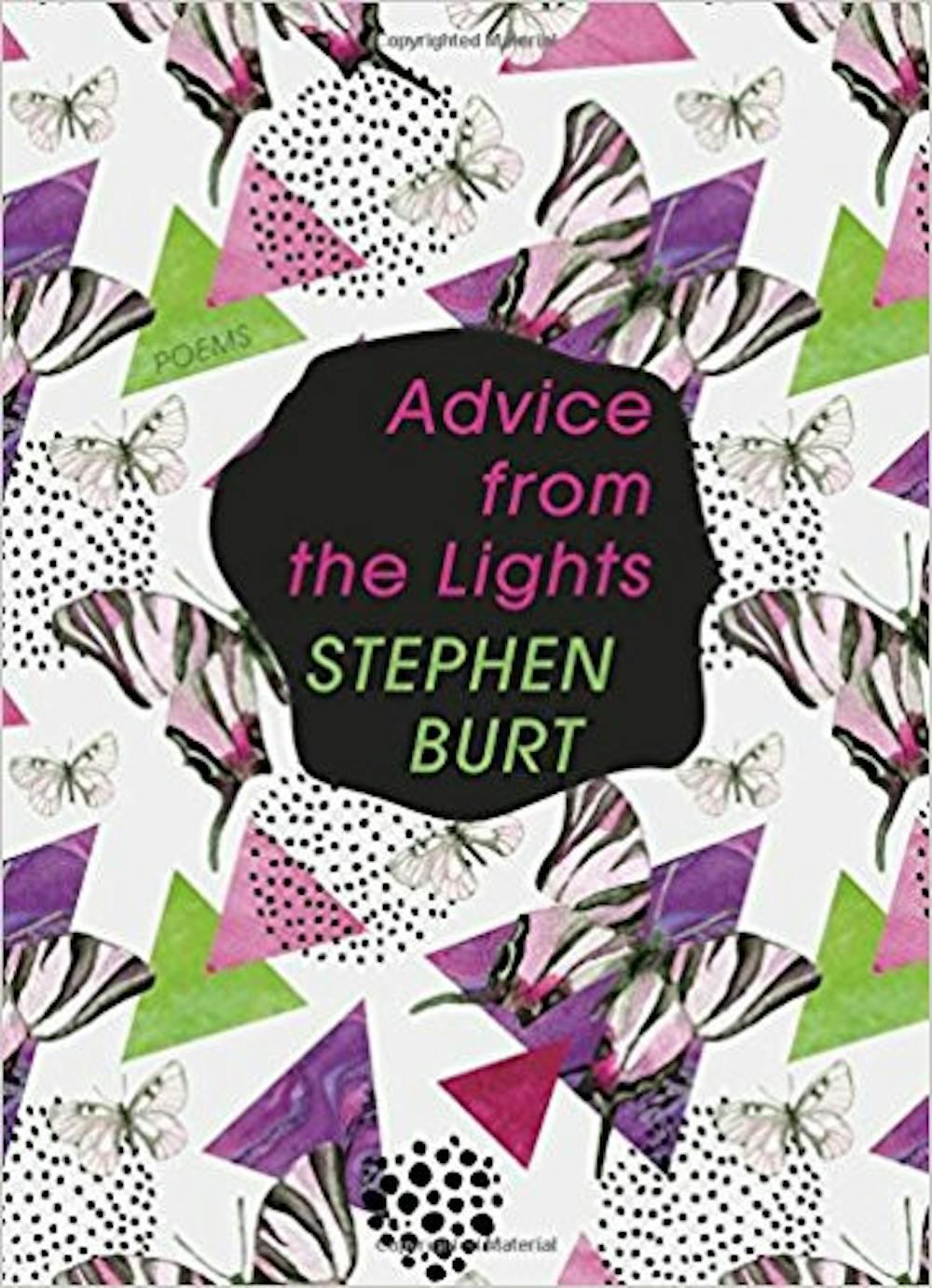Library Reserves Coordinator Kellam Ayres is liaison to the Bread Loaf School of English and the Bread Loaf Writers’ Conferences.
“Advice from the Lights” by Stephanie Burt, 2017
The What
Stephanie Burt, a poet, critic, and soon-to-be Breadloafer, is a Professor of English at Harvard, an author of several works of poetry and criticism, the co-poetry editor of The Nation, and will serve on the faculty of the Bread Loaf Writers’ Conference for the first time this summer. Her latest book of poetry, Advice from the Lights, was published in late 2017 and I’ve found it to be a compelling exploration of self, gender, childhood and the search for commonality in the world.
The Why
I always appreciate a book that starts with a powerful opening line, and Burt (who was previously known as Stephen) does not disappoint, as she begins by stating: “Everybody wants a piece of me.” This first poem, “Ice for the Ice Trade,” is a persona poem (which, if your Latin is a little rusty, just means that it is in the voice of another person or object). The speaker continues by saying “I have been weighed and measured, / tested and standardized, / throughout my young life.” Burt explores the examination of self throughout the book, and takes a thoughtful and often playful look at what surrounds us: the natural world (mole rats, water striders, cicadas), pop culture (there’s a nod to Taylor Swift), adolescent mean girls and 1980s nostalgia. She is able to blend feelings of anguish with a certain spiritedness, as she does in the poem “A Nickel on Top of a Penny,” when she writes about wanting “contradictory things, like security and excitement, / immortality, hang gliders, gumdrops, a home and all / the space in the world—…”
The book takes its structure not only through the frequent appearance of persona poems, but also by several powerful poetic sequences: poems centered on specific years in the 1980s, as in “My 1986,” which begins: “I painted all ten of my toenails with Liquid Paper / then followed my father’s injunction and scraped it all off.” The Stephanie poems, a sequence of self-portraits as a (longed-to-be) girl, include “Esprit Stephanie”:
The hard work of appearances disappears
into the apparent effortlessness, and the loose three-quarter sleeves
of trying to become what other
people, your friends, your real friends, are convinced that you already are,
like trying to follow the pale fleck of a small plane,
or a big plane far away.
Burt also skillfully uses rhyme throughout the book, and its use feels particularly moving and effective in another persona poem, “Secondhand Flashlight,” in which a flashlight details its moments at a rave, and scaring off skunks, and later:
Having resigned myself to my fixed form,
I was surprised to escape the cardboard coffin
of the charity shop that sold me.
Though none of my parts can soften,
the humid summer air can still corrode me.
Pick me up; test me every so often. Hold me.
Burt’s ability to address these questions of longing is so carefully considered and I especially enjoy her fresh and moving take on the classic existential questions: who am I and who am I meant to be? In the last Stephanie poem in the book, “Final Exam Stephanie,” the speaker explores both the rules and conventions of school and schoolwork, but also what happens after the final exam is over, as she seeks a place where she can be herself:
What is this air, this space in which nobody rewards
me for conformity,
or punishes me, or keeps
track of my time, what I wear, how I see
myself, or tries to tell me what my name should be?




